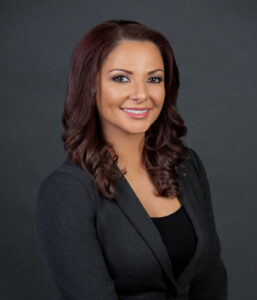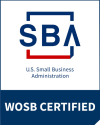We’ve been busy. Despite the many challenges of fighting for the rights of children with disabilities—especially during the COVID era—these outstanding ADAMS ESQ attorneys won hard-fought cases against large school districts. Read how their triumphs impact children with special education needs in California and Nevada.
 Pamela Daves, Esq.
Pamela Daves, Esq.
Student v. Whittier Union High School District: Student is a high-schooler with a learning disorder and speech and language deficits. Attorney Daves, representing parents and student, filed a due process complaint against Whittier, alleging that the school district denied Student a free, appropriate, public education (FAPE) by failing to timely and fully assess in all areas of disability and failing to offer appropriate services, supports and educational placement over the course of two school years. Whittier counter-sued parents, claiming that its own testing was perfectly fine and therefore it would not pay for Independent Educational Evaluations (IEEs).
Held: Whittier failed to timely and appropriately evaluate Student and failed to provide Student’s required academic and speech services. Whittier lost its counterclaim (that its assessments were legally compliant) and was ordered to pay for IEEs as an equitable (fair) remedy. Student was also awarded additional hours of private academic instruction and speech services at Whittier’s expense since Whittier failed to fulfill the services and supports under Student’s IEP.
What this means: For students with pre-existing IEPs, the COVID-19 pandemic did not free school districts and charter schools from their responsibility to appropriately and timely conduct legally-mandated testing and to provide special education services and supports under their IEPs.
 Sandra Robinson, Esq.
Sandra Robinson, Esq.
Student v. Madera Unified School District: Student is a high-schooler eligible for special education and related services under the primary category of emotional disturbance (due to mental health needs) and secondary category of other health impaired (due to ADHD). With the help of Attorney Sandra Robinson, Parent filed a due process case against Madera claiming that the school district failed to assess her child in all areas, including adaptive community living skills and transition, failed to design an appropriate IEP and failed to properly excuse the general education teacher from IEP meetings.
Held: Madera failed to assess Student in all areas of identified and suspected need, including academics, speech and language and transition planning. Due to its failure to test in all areas, Madera could not develop an IEP to meet Student’s needs. Madera failed to follow the required procedures to excuse the general education teacher from attending the IEP team meeting. Student was awarded private tutoring in reading, writing and math, additional assessments, and the judge ordered school district staff to undergo training in IDEA procedures.
What this means: School districts have an ongoing duty to identify and evaluate all students who are reasonably suspected of having a disability. The failure to test in all areas hinders the IEP team from creating an appropriate educational plan. Also, school districts must comply with procedural requirements when seeking to excuse a mandatory IEP team member, such as a general education teacher.

Amanda Laub, Esq.
Student v. Clark County School District: This case involved a high-schooler who had recently transferred from out-of-state to the Clark County School District (CCSD) in Nevada. The case centered on whether CCSD timely evaluated Student and provided an appropriate IEP, including ensuring full parent-participation in that process.
Held: Student, represented by Attorney Amanda Laub, was successful as CCSD failed to prove that it conducted timely and complete assessments. (Note that school districts have the burden of proof at hearing in Nevada). Therefore, the hearing officer awarded Student compensatory education services.
What this means: Nevada school districts and charter schools must complete an initial special education evaluation within 45 school days after the parent provides informed written consent.Nevada Administrative Code §388.337. A “school day” is any day that students are scheduled to be involved in registration, classes, other instructional activities or testing. The failure to follow this time line is a procedural violation that can result in liability for school districts and charter schools.
As always, please remember that the facts and law differ in all cases and special education judges and hearing officers have a great deal of leeway to order appropriate relief as they see fit. Therefore, results will vary in each case. It’s a good idea to seek legal advice from an experienced special education attorney in your area before filing or defending a special education due process case on your own. For more information on where to go and how to find the information you need to help your child, please review our “Fighting for Your Child” blog series.
Twenty years ago, attorney Jean Murrell Adams opened the law firm of ADAMS ESQ to provide high quality legal service at no cost to qualifying parents of children with special needs. Her own experience fighting for the rights of her exceptional child prompted her to dedicate her career to helping other parents.
ADAMS ESQ focuses exclusively on special education law. With locations in Los Angeles, Oakland, Riverside, Sacramento, Reno and Las Vegas, our staff, paralegals, advocates and attorneys are committed to helping children with disabilities obtain a free, appropriate public education throughout California and Nevada.

